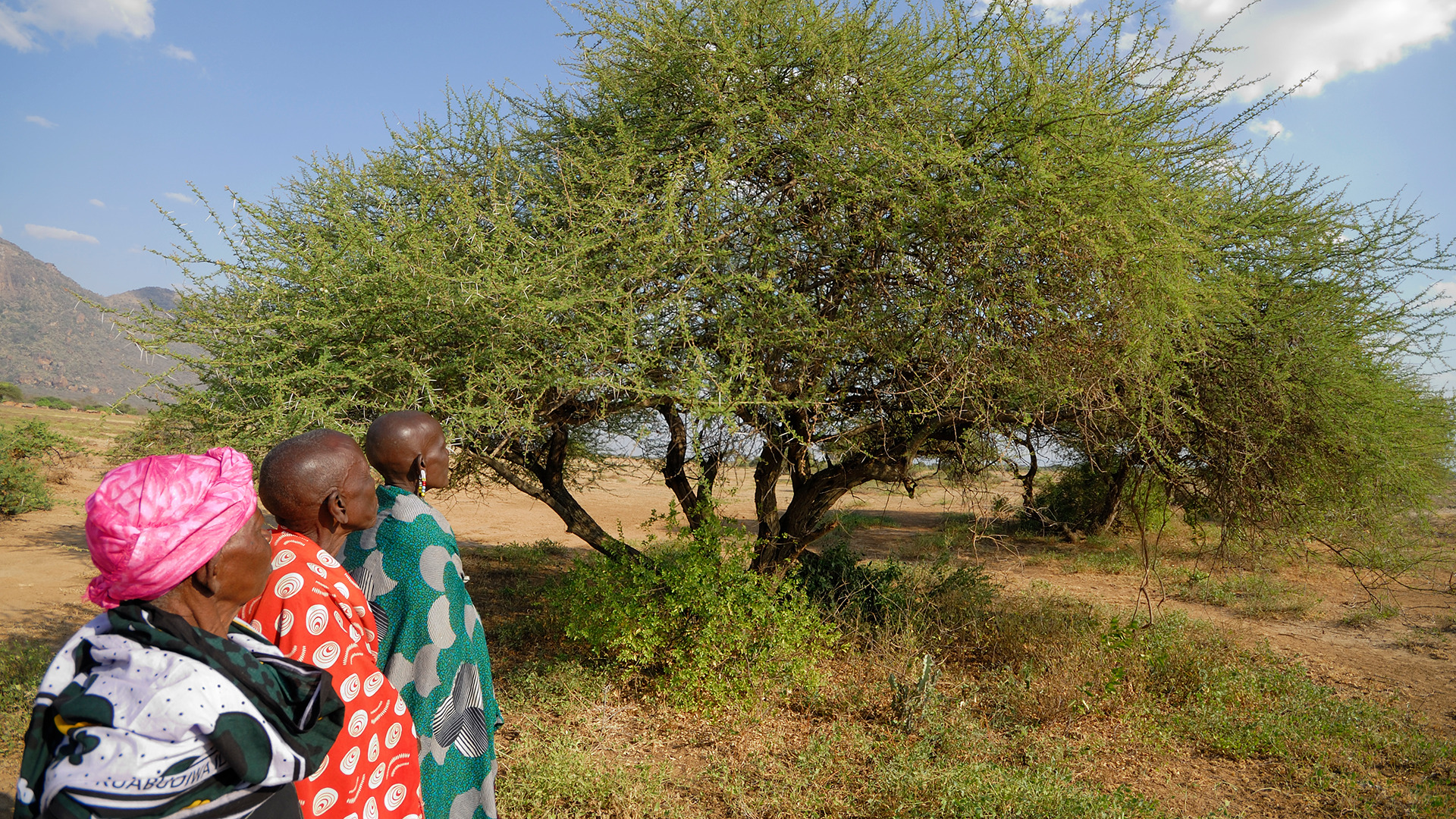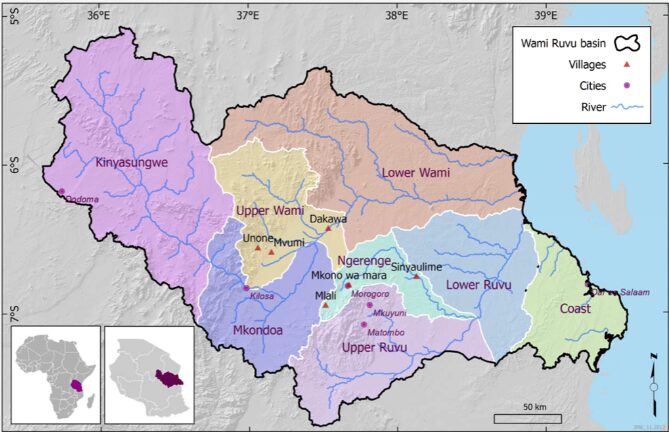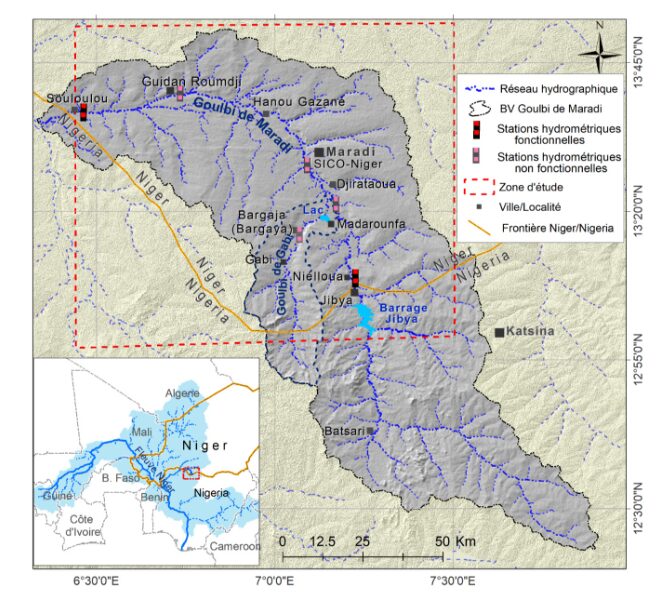
Climate adaptation and resilience in tropical drylands (CLARITY)
Two-thirds of Africa is covered in drylands that are home to some of the poorest and most marginalised communities. The CLARITY project integrates gender and inclusion perspectives into climate resilience through disaggregation and downscaling of models. It addresses rural/urban water resilience through transformational labs — collaborative spaces where people co-develop sustainable, equitable pathways to build climate resilience.
The project convenes transformational labs in the Sahel (Maradi region in Niger), and the drylands of central Tanzania (Dodoma). Each location covers a rapidly developing urban-rural interface, incorporates river basin-level scaling, and captures the complex challenges of water resilience. Our research documents the narratives of marginalised groups through video diaries, interviews and aspirations studies, allowing them to participate on an equal footing. We work with communities to assess water management practices, build models of plausible pathways, and embed research outcomes into wider policy and practice. We also pursue rigorous, action-oriented research, linking inclusive stakeholder engagement with cutting-edge modeling and measurement to synthesise existing knowledge and identify promising innovations to improve climate resilience in tropical drylands.
Context:
Tropical drylands are home to some of the poorest and most marginalised communities and are highly vulnerable to climate change. In these regions, groundwater plays a vital role in sustaining water supplies and livelihoods due to its ability to buffer against climate variability. Groundwater development offers opportunities for both sustainable development and climate resilience. But if poorly managed, there are risks of depletion, inequitable access and unsustainable development pathways.
The Approach:
CLimate Adaptation and Resilience In Tropical drYlands (CLARITY) addresses the critical need to identify equitable, sustainable and climate-resilient development pathways in tropical drylands. This Global South-led project will result in the creation of long-term assets (data and tools) and capacities to achieve transformational change.
In CLARITY, we focus on ‘Transformational Labs’ (T-Labs) in Niger-Nigeria and Tanzania, which span a range of dryland settings and capture the complex challenges of rural/urban water resilience under rapid development. The T-Labs are collaborative spaces where people take an active role in co-developing sustainable, equitable pathways.
Our approach is solutions-focused, transdisciplinary and novel in three ways. We will:
- Co-construct narratives of water management with marginalised groups based on video diaries and interviews, train ‘para-hydrogeologists’ in the community and collect and analyse data for local action.
- Use the narratives and data to build models that generate disaggregated and technically, socially ‘plausible’ pathways.
- Engage with key changemakers to ensure the research gets embedded in wider policy processes and communities of practice, by sharing tools, training materials, interactive reports and games.
Transformation Labs:
CLARITY brings together two T-Labs in semi-arid regions – central Tanzania (Dodoma) and the Sahel of Niger/Nigeria (Maradi), each at the urban-rural interface – and allows basin-level scaling. These T-Labs span the range of groundwater exploitation regimes. In Niger, the focus is on a shallow exploited aquifer; in Tanzania, the shallow aquifer has been depleted and pumping now targets deeper aquifers.
Dodoma, Tanzania Case Study
CLARITY brings together two T-Labs in semi-arid regions – central Tanzania (Dodoma) and the Sahel of Niger/Nigeria (Maradi), each at the urban-rural interface – and allows basin-level scaling. These T-Labs span the range of groundwater exploitation regimes. In Niger, the focus is on a shallow exploited aquifer ; in Tanzania, the shallow aquifer has been depleted and pumping now targets deeper aquifers.
Dodoma is situated in a semi-arid region of central Tanzania, underlain by crystalline rock aquifers. Mean annual rainfall is 550 mm, which occurs primarily between December and April, and varies considerably from year to year. Access to freshwater is becoming a challenge. There are no permanent surface water bodies, so the city and its rural hinterlands depend on groundwater from the Makutupora Wellfield, the only perennial source of freshwater. Freshwater demand substantially exceeds current supply and is expected to rise rapidly in coming decades.

The Ministry of Water is currently considering supply-side solutions that:
- increase the renewability of pumped groundwater resources from the Makutapora Wellfield using managed aquifer recharge interventions, and
- import surface waters from distant basins (Lake Victoria, Rufiji) via pipelines.
To address these, there are uncertainties in knowledge that need to be looked into:
- the response of the pumped wellfield to increasing abstraction;
- whether the bias in groundwater replenishment to extreme heavy rainfall, observed by our research team, will increase the renewability of groundwater under the amplification of rainfall extremes due to climate change; and
- the scale of agricultural use and its impact on domestic water-supply interruptions.
Maradi, Niger-Nigeria (Transboundary) Case Study
The Maradi region is in southeastern Niger. It has seen the highest level of vulnerability (PANA-Niger 2018) due to the region’s high population growth, degraded soils, small landholdings and inadequate access to agricultural technologies. Groundwater occurs in shallow alluvial aquifers along the river Goulbi de Maradi and the underlying regional sandstone aquifer (Continental Hamadien). Shallow aquifers are currently used for domestic purposes and irrigation via washbores and tube wells. This groundwater is replenished episodically during the monsoon season, via the transboundary flow of the river Goulbi de Maradi and water releases from the Jibya dam in northern Nigeria.

Groundwater withdrawals to sustain smallholder irrigation and domestic water supplies to the city of Maradi are projected to increase dramatically under national adaptation plans to address water and food security (e.g., the ‘Nigeriens Nourishing Nigeriens’ programme).
There is an opportunity to engage stakeholders on sustainable limits of abstraction under different climate regimes and the risk of non-adherence (increased cost, project failure, etc.). Further, one can examine the potential of sustainably scaling up groundwater withdrawals from the sandstone aquifer to expand drinking-water supplies, smallholder irrigated agriculture and water availability for transhumant herders.
But there are key knowledge gaps to be addressed. The impacts of climate change on water resource availability and the operation of the Jibya dam, both influencing the renewability of exploited groundwater in Maradi and downstream, are not fully understood. Further, it is unclear whether the regional sandstone aquifer is also actively replenished by episodic flows of the river Goulbi de Maradi.
The Anticipated Impact:
CLARITY is needs-driven and solutions-oriented. The research team has established long-term relationships with stakeholders on the ground (communities, practitioners and policy makers) through a history of transdisciplinary research. We shall also focus on:
Embedding: We intend to engage ‘change makers’ in our T-Lab areas and at the basin and national levels to embed novel ideas, approaches and innovations emerging from our work.
Translation: CLARITY partners have established a dialogue with the ‘Accelerator Labs’ initiative of the United Nations Development Programme (UNDP). We plan to connect our T-Labs to Accelerator Lab activities in UNDP country offices to enable the exchange of ideas and experiences, and (possibly) leveraging of additional funding and technical support.
Scaling: We will pursue a multi-pronged effort to produce academic, practical and policy-relevant knowledge products to inform key debates and influence policy and practice, thereby helping the interventions be applicable at other scales and contexts (i.e. changing how people think). We will engage with national and regional initiatives, such as the African Ministerial Council of Water’s ‘Pan-African Groundwater Program’ (AMCOW-PFGP) and the Intergovernmental Panel on Climate Change (IPCC).
In each T-Lab, stakeholders are already actively exploring potential solutions that are both ‘bottom-up’ (e.g. rainwater collection, self-supply (private) wells, ‘million’ (recharge) wells) and ‘top-down’ (e.g. crop choices, managed aquifer recharge, transboundary water governance through benefit sharing). CLARITY will test the equity, sustainability and resilience of these solutions to inform policy and practice.
Lead organizations
Sokoine University of Agriculture (SUA),
University College London (UCL)
Partners
Contacts

